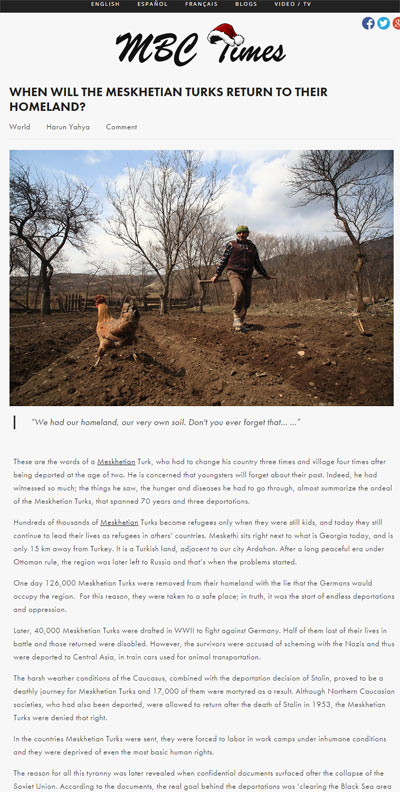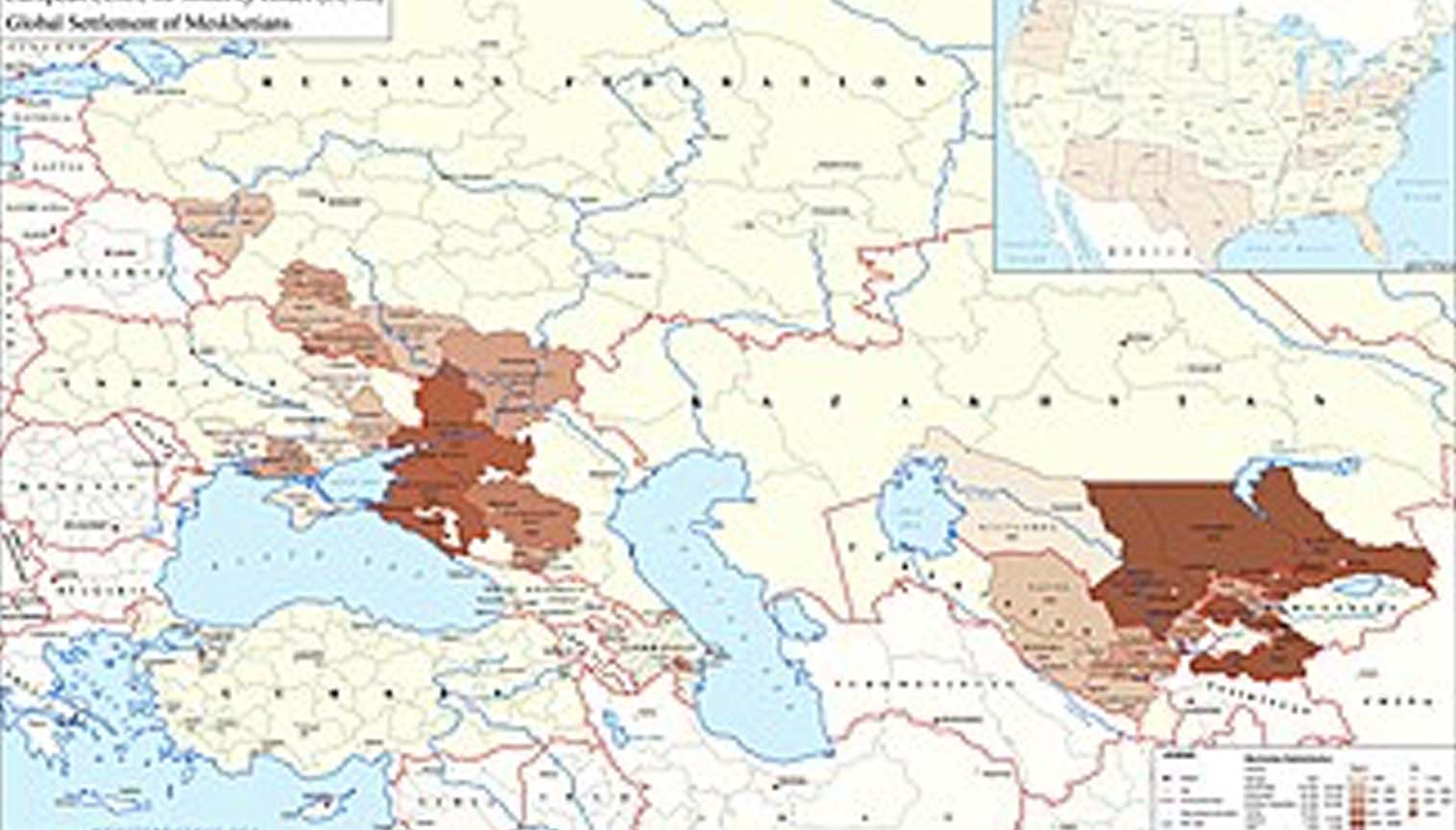
These are the words of a Meskhetian Turk, who had to change his country three times and village four times after being deported at the age of two. He is concerned that youngsters will forget about their past. Indeed, he had witnessed so much; the things he saw, the hunger and diseases he had to go through, almost summarize the ordeal of the Meskhetian Turks, that spanned 70 years and three deportations.
Hundreds of thousands of Meskhetian Turks became refugees only when they were still kids, and today they still continue to lead their lives as refugees in others’ countries. Meskethi sits right next to what is Georgia today, and is only 15 km away from Turkey. It is a Turkish land, adjacent to our city Ardahan. After a long peaceful era under Ottoman rule, the region was later left to Russia and that’s when the problems started.
One day 126,000 Meskhetian Turks were removed from their homeland with the lie that the Germans would occupy the region. For this reason, they were taken to a safe place; in truth, it was the start of endless deportations and oppression.
Later, 40,000 Meskhetian Turks were drafted in WWII to fight against Germany. Half of them lost of their lives in battle and those returned were disabled. However, the survivors were accused of scheming with the Nazis and thus were deported to Central Asia, in train cars used for animal transportation.
The harsh weather conditions of the Caucasus, combined with the deportation decision of Stalin, proved to be a deathly journey for Meskhetian Turks and 17,000 of them were martyred as a result. Although Northern Caucasian societies, who had also been deported, were allowed to return after the death of Stalin in 1953, the Meskhetian Turks were denied that right.
In the countries Meskhetian Turks were sent, they were forced to labor in work camps under inhumane conditions and they were deprived of even the most basic human rights.
The reason for all this tyranny was later revealed when confidential documents surfaced after the collapse of the Soviet Union. According to the documents, the real goal behind the deportations was ‘clearing the Black Sea area and its vicinity from Turks’.
At the moment, 425,000 Meskhetian Turks live in nine different countries as refugees. Some sources claim that this number reaches 630,000.
Meskhetian Turks are making a great effort to go back to their homeland, and work to build public opinion in favor of that. Following the collapse of the Soviet Union, the possibility of returning to Georgia once again became a topic of discussion. Indeed, the European Council, told Georgia that in order to accede to the EU, Meskhetian Turks should be allowed to return to their homeland; after that 10% of those who applied to Georgia were allowed to repatriate. However once Georgia joined the EU, the promises were forgotten and applications were denied or considered void with excuses such as missing documents.
The region has very important qualities and this tells why Meskhetian Turks aren’t allowed back. The region that incorporates Meskheti lies on the route of the Baku-Tiflis-Ceyhan pipeline. For this very reason, it is very significant for the neighboring countries.
There are many questions that need answering regarding the repatriation. Armenians mostly reside in the former Meskheti lands and many are concerned that the return of the Meskhetian Turks will spark a second Nagorno incident.
To mark their 70th anniversary, various symposiums and social functions were held in many countries for the Meskhetian Turks. In Turkey, a documentary movie was prepared to draw attention to their ordeal, explaining how they saw their homeland only last year. Certainly, all these useful efforts are important in the sense of raising awareness in the international community. However, efforts must be solution-oriented. Moreover, it is important to work for the salvation of not only a single nation or a region, but for the salvation and the peace of the entire community.
Turkey is one of those countries that lent the greatest support to Meskhetian, even if it is not enough. Our country continues and will continue to support and protect the wronged ones, no matter how powerful the oppressors are, or wherever they might be.
Our country stands by wronged people regardless of differences in religion, ethnicity, language and helps them unconditionally. All the oppressed people in the world, wherever they might be, know that Turkey will help them and offer the greatest support, morally and physically. However, Turkey cannot possibly put an end to the oppression in the world single-handedly. To do that, people of faith should come together and join forces. The current system of the world should be replaced with a whole new understanding of love and friendship. Everyone needs to experience - and ensure that others too, experience - the joy of helping others and the importance and necessity of altruism and selfless behavior.
Adnan Oktar's piece on MBC Times:
http://www.mbctimes.com/english/when-will-the-meskhetian-turks-return-to-their-homeland


